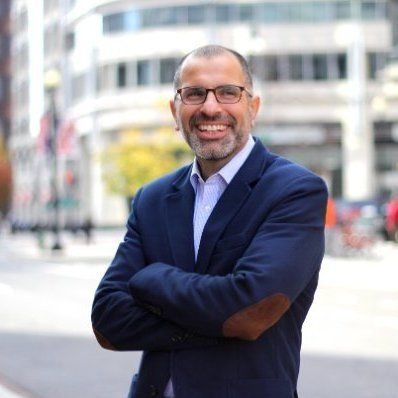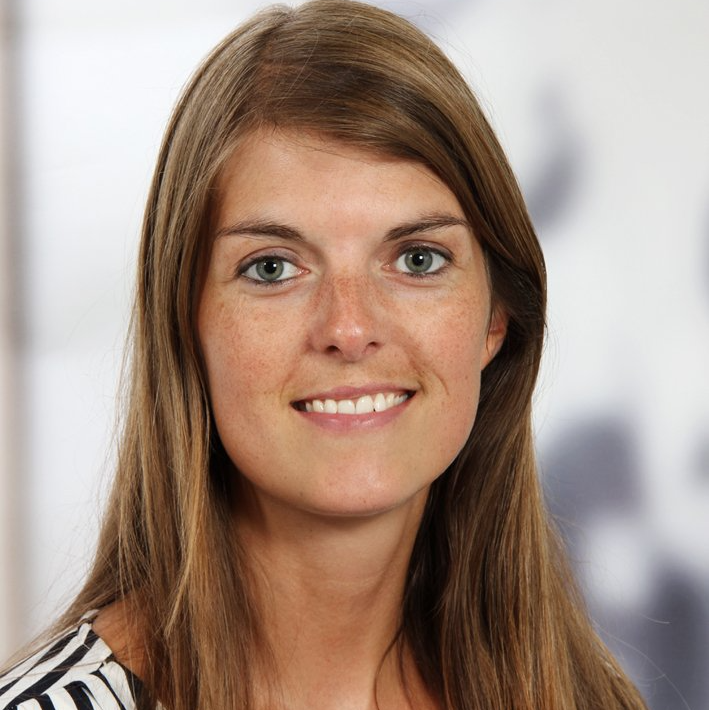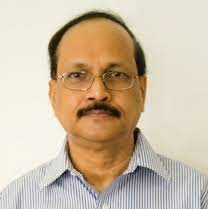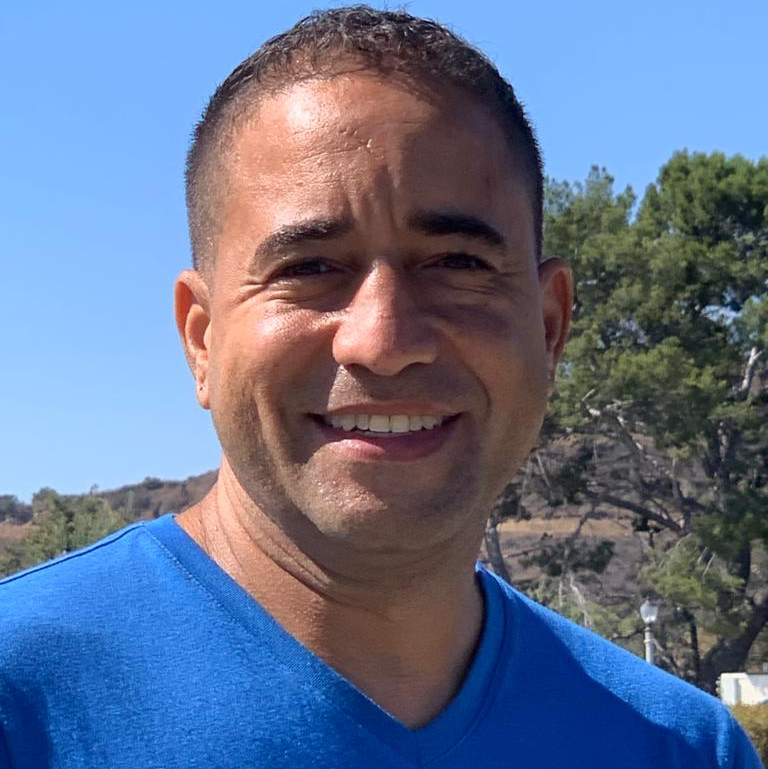The Global Pandemic
10:15 AM - 12:00 PM EDT
Topic: Building Forward Better: A Financial Perspective on Impact Economy
Impact economy is an economy, in which governments and companies balance profit and impact to achieve the sustainable development goals. The businesses generate profits in a way that positively contributes to the sustainability of social, environmental and/or cultural dimensions of society. In other words, it is possible and expected to achieve both financial returns and social impact through investments into companies that do good while doing well also return wise.
This session will highlight emerging and innovative opportunities for cities to build forward better. Financial institutions, banks, and investment agencies will further explore how cities can leverage these new opportunities for urban recovery.
Speakers
The Moderator of the Session
Eugene Van Den Berg
- CFO, Finance Executive & Urban Economy Forum Senior Advisory Board Member, Canada
My talents stem from International-, Canadian- and varied experience over many years, in finance and financial management combined with a strong focus on implementation, financial process improvement, post-merger integration, developing infrastructure- and project finance, and delivering on compliance & reporting improvements. I practice 360-degree vision around the tasks, projects and finance aspects I manage. Deep diversity affords me the ability to focus effort around tasks and the broader strategy-implementation level to better support daily financial management requirements, funder- and investor relations.
Horacio Cristian Terraza
- Lead Urban Specialist, The Latin American Region, World Bank, United States
Horacio has more than 20 years of professional experience in the urban-environmental field, having worked both in the private sector and multilateral development organizations.
He is the Lead Urban Specialist for the Latin American Region of the World Bank focusing on cities, urban infrastructure and resilience. During the previous 8 years he worked at the Inter-American Development Bank (IDB) as the Coordinator of the Emerging and Sustainable Cities Initiative (ESCI) and as Principal Water Specialist.
Before the IDB Horacio worked for 11 years as a Senior Environmental Specialist at the World Bank, leading the urban environmental agenda and coordinating operations related to carbon finance in the Latin American Department. Prior to that, he worked in the private sector as Project Manager for environmental engineering companies providing treatment and final disposal of hazardous substances.
Horacio has extensive experience in complex projects related to urban infrastructure and industrial pollution, implementing many of these within the framework of the principal international environmental protocols including: The Stockholm Convention on Persistent Organic Pollutants, the Convention on Climate Change and the Kyoto Protocol and the Montreal Protocol on Substances that Deplete the Ozone Layer.
Horacio was trained as a mechanical engineer at the National University of La Plata in Argentina and holds a Master’s in International Economics and International Relations from the Johns Hopkins University School of Advanced International Studies (SAIS).
Mee Kam Ng
- Vice-Chairperson, Hong Kong Institute of Asia-Pacfic Studies, University of Hong Kong
Professor Mee Kam Ng is Vice-chairman of the Department of Geography and Resource Management, the Director of the Urban Studies Programme, Associate Director of the Institute of Future Cities, the Hong Kong Institute of Asian Pacific Studies and the Yunus Social Business Centre at the Chinese University of Hong Kong. She is a member of the Royal Town Planning Institute, a fellow of the Hong Kong Institute of Planners and academic advisor of the Hong Kong Institute of Urban Design. She was elected as a Fellow of the Academy of Social Sciences in the United Kingdom in 2016. Her publications have earned her six Hong Kong Institute of Planners’ Awards and the 2015 Association of European Schools of Planning Best Published Paper Award. She has been consultant to the United Nations, the European Union and the Municipal Government of Shenzhen. The Urban Studies Programme she directed is a Member of the UN-Habitat’s World Urban Campaign, promoting the implementation of the New Urban Agenda.
Jan Köpper
- Head, Impact Transparency & Sustainability, GLS Gemeinschaftsbank, Germany
Jan Köpper is heading the department on impact transparncy & sustainability at GLS Bank Germany. In his role Jan is responsible for the conceptualization, coordination and implementation of societal impact measurement and management, the analysis and translation of sustainability risks, the sustainability assessments in corporate loan transactions as well as the integration of sustainability related processes in internal sustainability and bank management in the GLS Group. Following posts at the business network CSR Europe in Brussels and the sustainability rating agency imug/VE in Hanover he joined GLS Bank in April 2018 to start his current position.
Jan is founding director of the Peer School for Sustainable Development e.V. and chairman of Cluster e.V.. He has published numerous articles and media contributions. Besides, he oversees the memberships of GLS Bank in Er betreut zudem die Mitgliedschaften der GLS Forum Nachhaltige Geldanlagen (FNG), B.A.U.M. e.V. and the United Nations Principles for Responsible Banking (UNPRB).
Maria B. Rasmussen
- Corporate Responsibility & Sustainability Manager, Arbejdernes Landsbank
Maria B. Rasmussen has worked 15 years in the banking sector in Denmark - for the past 8 years in Arbejdernes Landsbank, where she takes lead in the development and implementation of the corporate sustainability strategy across core business areas and functions.
Banks and financial institutions are in general in a unique position to not only contribute but also drive the transition to a more sustainable economy. As banks are investing and allocating capital across multiple sectors, they can direct funds into organisations that benefit society and the environment as well as influence corporate and personal customers to make sustainable change. Arbejdernes Landsbank is a value-based bank owned by Danish Unions and building upon more than 100 years of responsible banking. It is among the largest banks operating in Denmark – having more than 330,000 customers and 70 branches all over Denmark. In 2021, Arbejdernes Landsbank acquired the local Danish bank Vestjysk Bank adding approximately 200,000 customers and 34 branches to the group. As a result of the acquisition, Arbejdernes Landsbank is today a Systemically Important Bank in Denmark.
Maria B. Rasmussen is the primary driver for making sustainability among the top priorities concerning the future development of the bank, and in 2021 Arbejdernes Landsbank signed the UN Principles for Responsible Banking, UN Principles for Responsible Investments and UN Global Compact. Moreover, she has motivated the setup of Arbejdernes Landsbank’s Sustainable Committee anchored in top management, and today she is Secretary for this Committee. Arbejdernes Landsbank is fully committed to increasing awareness and action for sustainable progress. We believe sustainability is at the core of creating lasting value for our customers, owners and other stakeholders, while at the same time contributing to solving critical issues in society.
Together with an internal team Maria B. Rasmussen focuses on the further development of approaches for measuring and analysing the bank’s ESG-impact, including climate impact. This will not only create more transparency about the bank and our baseline, but will also allow us to set specific targets and systematically decrease our negative impacts and increase our positive impacts.
Jonathan Hackett
- Co-Head for BMO Energy Transition Group & Head of Sustainable Finance, Bank of Montreal
Jonathan Hackett is the co-head of BMO’s Energy Transition Group and Head of BMO’s Sustainable Finance team. In these roles he advises clients on opportunities as they navigate the transition to a low carbon economy, supports clients in navigating the impact of ESG on their access to capital, and advises on sustainable financing structures. Jonathan’s team also includes BMO’s $250MM impact investment fund which has a mandate to invest in companies that are producing solutions in the sustainability and energy transition space. Prior to joining BMO in 2017, Jonathan was a principal with the Boston Consulting Group and also a researcher in residence at the Perimeter Institute for Theoretical Physics where he completed his doctoral research in Quantum Gravity and Topology.
Prasanna Kumar Mohanty
- Professor of Economics, Hyderabad University, India
Dr. Prasanna Kumar Mohanty was a Post-doctoral Fellow in Harvard University. He did MA (Economics) from Delhi School of Economics, MA (Political Economy) and PhD (Economics) from Boston University – with specialisation in Urban Public Policy and Finance. He was also a Fellow of Population Council, New York. Currently he is Chair Professor of Economics, University of Hyderabad, and honorary adviser to Centre for Good Governance (CGG) and National Institute of Urban Management (NIUM), Hyderabad. An officer of Indian Administrative Service (1979 batch), Dr. Mohanty was the last Chief Secretary to Government of the combined State of Andhra Pradesh, a post held by him after becoming Secretary to Government of India. His other posts include: Mission Director, Jawaharlal Nehru National Urban Renewal Mission (JNNURM), Government of India; Commissioner of Visakhapatnam and Hyderabad Municipal Corporations; Vice Chairman, Hyderabad Urban Development Authority, Director General, Centre for Good Governance (CGG), Hyderabad, and District Collector and Magistrate, Guntur, Andhra Pradesh. He has been a member of several expert committees at national level, including Committee on National Training Policy, Expert Committee on Identification of BPL Households, Expert Group on Decentralised Planning, etc. His initiatives for urban forestry in Visakhapatnam and Hyderabad Municipal Corporations bagged Prime Minister’s Award twice. Dr. Mohanty has authored "Financing Cities in India: Municipal Reforms, Fiscal Accountability and Urban Infrastructure” – Sage Publications (2016) and “Cities and Public Policy: An Urban Agenda for India" – Sage Publications (2014). He has co-edited "Urbanisation in India: Challenges, Opportunities and the Way Forward" – Sage Publications (2014). He led the seminal study: "Municipal Finance in India – An Assessment”, undertaken and published by Reserve Bank of India (2007). His current research interests include fiscal federalism, urban planning and development, infrastructure finance, good governance and public policy reforms
Brennan Banks
- Director, Cassandra Banks Foundation, USA
Having been raised by a strong, intelligent and independent woman with a passion for travel and for service, Brennan’s career path reflects her core values and innate desire to make people’s lives better. Brennan started his career as an international humanitarian in 2002 as a refugee caseworker in sub-Saharan Africa where he assisted families from the horn of Africa, the Great Lakes Region and West Africa. After supporting hundreds of families’ resettlement in the U.S., he returned to his hometown of Riverside, California to volunteer with his local Red Cross office and give back to the community he loves.
In 2009, he returned to Africa as the International Federation of the Red Cross and Red Crescent’s Regional Disaster Operations Manager for Eastern Africa managing the planning, coordination, and implementation of disaster response operations in 14 countries. Brennan also developed disaster management programs throughout Africa, including extensive work on community-based disaster risk reduction programming in the Zambezi River Basin regions of Namibia, Zambia, Botswana and Zimbabwe.
From 2014-16 Brennan was deeply involved in the West Africa Ebola Outbreak. First as the Ebola Response Coordinator for the Red Cross where he planned programs and coordinated emergency resources. Then as Deputy Director of Programs for Paul G. Allen Family Foundation’s $100 million Ebola Program where he supported the development of the response and recovery program portfolio.
After the harrowing 2017 Atlantic hurricane season, Brennan worked across the Caribbean where he spent 12 months overseeing response and recovery programs in Puerto Rico, St. Maarten, Antigua & Barbuda, and St. Kitts & Nevis. He then joined the Center for Disaster Philanthropy (CDP) in 2018 to manage their international and domestic disaster grantmaking portfolios. Throughout his career, Brennan has seen the significant impact of investment in individuals and their communities – trusting and knowing that those who have lived experience are best suited to identify needs and opportunities for recovery.
After two decades of working in philanthropy and implementing assistance programs around the world, Brennan founded the Cassandra Banks Foundation to put lessons learned and best practices into action on behalf of black women in nontraditional roles as a way to honor his mother who is his role model and his inspiration for exploring the world and giving back.
Massoud Ghandchi
- President & Founder, Ghandchi Organisations, Canada
Massoud is the Founder and President of Mer/Ax Investments and Development. He has been involved in numerous multi-million dollar real estate project of various kinds. With over 15 years of experience in commercial and residential real estate, Massoud specializes in applying his expertise and market knowledge around Greater Toronto Area to successfully guide local, national and international clients with their commercial and residential real estate transactions; obtaining the ability to provide the necessary solutions with the client’s interest first. Massoud’s extensive experience in powerful negotiations, commitment to honest communications and intelligent use of the latest technology in real estate are examples of some of his ingredients to a successful career in real estate.
Mike Labbe
- CEO of Home Opportunities Non-Profit Corporation, Canada
As president and CEO of the non-profit organization Options for Homes, Mike Labbé has helped over 3700 families achieve home ownership. Labbé is an Urban and Regional Planning graduate who believes home ownership should be available to everyone, and he is dedicated to providing high quality homes to families with annual incomes as low as $20,000.
Options for Homes recently expanded its business model to include green energy and car sharing, giving Options homeowners access to solar hot water heating, heat recovery ventilation systems, and a cooperative car-sharing program.
Since its founding in 1993, Options for Homes has expanded across Canada, the United States and several developing countries. The organization has been recognized for a variety of achievements, including: 2002 CMHC Housing Award – Finance and Tenure; Canadian Mortgage and Housing Corporation 2004 Co-operative Innovator Award; Ontario Co-operative Association 2007 Schwab Foundation Social Entrepreneur of the Year (finalist); Schwab Foundation for Social Entrepreneurship 2007; Tides Top Ten for 2007: Social Justice; Tides Canada 2008 Local Hero Award; Canadian Urban Institute 2009 Pickering Civic Award for Sustainability; and City of Pickering 2010 Affordable Housing Champion , City of Toronto.
Mike Labbé is a nominee for the 2012 Faculty of Environment Alumni Achievement Awards.
Drew Dilkens
- Mayor of Windsor, Canada
Drew Dilkens is a lifelong resident of the City of Windsor. He holds business and law degrees from the University of Windsor (called to the bar in 2012) and an M.B.A. from Wayne State University. He received his Doctorate of Business Administration from the International School of Management in Paris, France with a focus on municipal amalgamation in Ontario. He obtained the Chartered Director (C.Dir.) designation from The Directors College (2021), and also holds the professional designation of a Certified Human Resources Leader, along with training certificates from the Canadian Foreign Service Institute, Canadian Securities Institute and Federal Bureau of Investigations in the United States. He was elected Mayor of the City of Windsor on October 27, 2014. He was re-elected on October 22, 2018, for his second term. Mayor Dilkens is committed to a program of fiscal discipline and economic diversification. Since being elected, he has continued to focus on improving the city’s infrastructure – including roads and sewers, holding the line on taxes, supporting economic development that creates jobs and attracts investments, and positioning Windsor as a destination of choice for those looking to build homes, careers and families.













